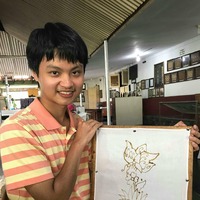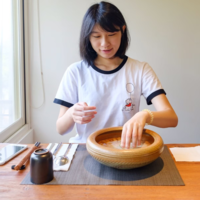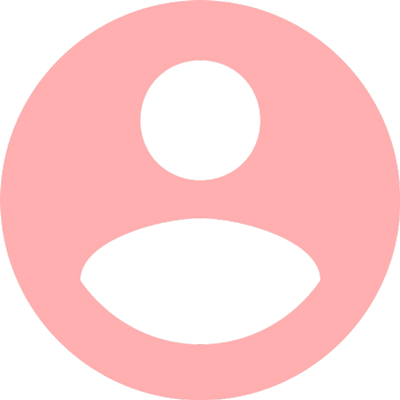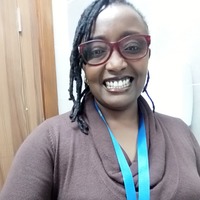【Mandarin and English versions are both included】
〈也許你也好奇:為何我要學習印尼文?〉
許多人好奇我為何學習印尼文?若我是商業人士,可能有經商需求;假如我是新住民,或許是出自親情與血緣。然而我讀的是心理諮商,也沒有新住民身分,為何學習印尼文呢?
我的動機有兩個,而我通常會先說出其中一個讓對方忍俊不禁,等待笑聲止住再說出另外一個,眼裡的笑意頓時轉為敬意。
〈玩笑話開始的學習旅程〉
從小我就因為膚色黝黑加上五官深邃,容易被認作原住民族。上了高中和父親去印尼玩,也不時被當作當地人。上了大學因為國際學生眾多,更是常常被馬來西亞及印尼人認親。於是我就跟我的馬來西亞朋友說,不如我就來學馬來/印尼文好了,這樣我就可以偽裝的更像了!一開始只是玩笑話,說著說著我和馬來西亞朋友竟開始認真了,每次路上遇到,他們就很熱心地教我一些馬來文。後來又在網路上找到印尼文的語言交換,建立了更豐富的詞彙庫。語言交換結束後,我便到馬來西亞的甘榜(鄉下)當志工六週,因為當地人幾乎不會英文,同行夥伴也沒學過馬來文,我那破破的馬來文在點餐時也越來越流利。這段期間的學習是出自於樂趣,也在學習及應用的過程中感受到極大的趣味及信心。但很多發音不是很標準,在馬來及印尼文間轉換也容易混亂,不過接下來的日子因為忙著實習,便也沒有心力精進。
〈結合興趣與專業發展〉
實習結束之後我考上諮商所,與一位社工朋友聊天時,他提到現行新住民及移工諮商的制度仍然不是很完善。因為移工的中文不見得流利,心理師會使用的外語通常也只有英語,所以往往需要通譯人員居中協助。然而通譯人員畢竟沒有受過翻譯及諮商的專業訓練,在理解及傳達心理師的用字遣詞時,甚至是翻譯後的情緒調適上都遇到許多阻礙。尤其會被社福單位或是移民署轉介的個案,通常伴隨著性侵、受暴等等需要更細膩處理的議題,不論是心理師或是通譯人員都需要更謹慎與個案互動。針對這樣的挑戰,除了協助通譯人員精進翻譯及諮商方面的專業,如果有心理師會說印尼文等移工及新住民的語言,是不是也能有效減少誤解?而我是心理健康領域少數學過印尼文的人,是不是相對有機會在未來一同面對這個難解的困境?
於是,我決定結合語言基礎以及專業發展,期許自己有朝一日能夠更有效協助新住民與移工的個案。上個月底我下定決心學習印尼語,從基礎的發音開始磨練,計畫兩年後達到B2的等級。
〈我的第一段印尼語學習旅程〉
開始和Hendri老師上課後,果然不斷的被修飾發音。從清音、濁音,到鼻後音甚至是最惡迷昭彰的顫音,老師都很清楚發音方式的差別,總是反覆示範並且在我練習後給予建設性的回饋。很喜歡老師說,反覆練習,並且在獲得回饋後修正,熟練之後就會內化成習慣。
果然,短短五堂課,搭配課後自己不斷練習,我的發音真的不斷進步,一開始幾乎只要開口就會被暫停以便修飾發音,現在多半是調整一些小地方,或是學習一些較不直觀的發音方式。最驚喜的便是自己竟然開始能發出顫音了,也許還不是那麼自然,但從零到一的質變,比起從一到二的量變更值得歡呼。
這五堂課不僅僅是學習語言,也是在增進自己的認知彈性。其實,我很多發音錯誤是受到英語影響的。比如說,a若放在英文單字字尾會弱化,但在印尼文卻依然是豪邁的ㄚ。儘管我覺得自己發的是ㄚ,但因為習慣發弱化音,老師依然覺得我念的不夠豪邁哈哈。說起來很有趣,過去學英文努力學習弱化,現在卻要反其道而行。
另一個印象深刻的是,英文若想問你剛看到什麼是what did you just see? 但在印尼文apa(what)後面一定要加某個東西,所以會是apa(what) yang(that) kamu(you) lihat(see) tadi(just)?
學習不同語言,就像是學習不同的思考方式與表達方式,而當我能提升思考與表達的彈性,造福的不僅是新住民及移工案主,而是所有有緣來到我面前的個案。
★Why do I want to learn Bahasa Indonesia?
Nearly every time I mentioned I was learning Bahasa Indonesia, others would ask “what for?” If I were a businessman, then probably I would learn it to expand my business to Indonesia. Were one of my parents from Indonesia, then likely I would learn it to build a more intimate relationship with him or her. However, I am a counseling major to be without Indonesian descent. In this case, why is it?
★My learning journey started with a joke
I’m not joking. My learning journey did start with a joke. During my university life, due to my relatively dark skin color and pronounced facial feature among Taiwanese, I was usually taken as one of their counterparts by Malaysian and Indonesian. One day I joked “what if I learn Malay and Indonesian to disguise better as Malaysian and Indonesian?” In the beginning, my Malaysian friends and I just burst out laughing. As the joke repeated, however, we somehow took it seriously and I set out my learning journey to Malay and Indonesian. Every time we met in class or on the campus, they taught me some basics of Malay. In the meanwhile, I found a language exchange partner to learn Indonesian once a week. After that, I went volunteering for 6 weeks in a village in Malaysia, a rural area where people hardly speak English and thus made for a perfect environment to practice Malay. At first, the locals often laughed at my broken Malay, but week after week, at last, I could easily order meals with fluent Malay. In this phase, I learned Malay and Indonesian mostly for fun, and indeed, I not only enjoyed myself but also gained more confidence in learning a new language. However, it was obvious that my pronunciation still left a lot to be desired and that shifting between Malay and Indonesian can be confusing to me sometimes. Although well aware of the above-mentioned room for improvement, I was so busy with my practicum that I didn’t keep polishing my Malay or Indonesian.
★Learning Indonesian as my professional development
After my practicum, I was lucky to be granted admission to the graduate school of counseling. One day I told a friend of mine who was a social worker that I was going to major in counseling, she encouraged me to research on the mental health issues among migrant workers and new immigrants from Southeast Asia as the counseling service for them still left a lot to be desired. There is usually a large language gap between counselors and these clients given that these clients don’t always speak fluent Mandarin and that few counselors speak the first language of these clients. To bridge the gap, interpreters are often needed. However, given that these interpreters are seldom equipped with the expertise either in interpretation or in counseling, they may have difficulties understanding and conveying counselors’ expressions, and even taking care of themselves after engaging in a therapy session. To tackle this challenge, apart from improving interpreters’ translating and counseling skills, ideally, it will be of equal importance for counselors to learn these clients’ first languages to avoid misunderstanding during the therapy session. As a counselor to be who has ever learned Indonesian, I am willing to make the above-mentioned solution a reality rather than a fantasy.
Consequently, last month I made up my mind to learn Indonesian-from the basic one to the advanced one-and to reach a B2 level in two years.
★Took a small but significant step to my dream
Since the very first class with Hendri, my pronunciation has improved a lot with the aid of his expertise in phonology. Namely, Hendri always shows me where I should put my tongue and allows me to practice repeatedly after giving me corrective feedback. I am impressed by his saying that constant practice based on corrective feedback helps make it a habit to speak articulately. As far as I am concerned, what he said is true! After five classes, what I am most proud of myself now is that I could pronounce “r” sound in a more Indonesian style.
Besides learning a new language, I would say these five classes also improve my cognitive flexibility, the ability to think in various ways. Take vowel weakening as an example. “A” is usually turned into[ə]in English, but it is not the case in Indonesian. Interestingly, I have made lots of efforts to weaken vowels in learning English, but now I’ve got to do something opposite. Another example is to ask “what did you just see” in Indonesian, we can’t say”apa(what) kamu(you) lihat(see) tadi(just)?” Rather, we should ask “apa yang(that) kamu lihat tadi?” as there must be a thing after apa(what).
A small step as these five classes may seem, they are truly a significant start to becoming a counselor that can help migrant workers and new immigrants!
I took a small but significant step to my dream
Profesores

Henry 🥇Bisa berbicara lebih dari lima dialek bahasa Indonesia 🥇
Tutor Bahasa Indonesia

Tutor Bahasa Indonesia
Mengapa Anda harus belajar dengan saya?
- Fasih berbahasa Inggris
- Guru terbaik untuk keterampilan percakapan
- 6+ tahun pengalaman mengajar
- Aksen netral yang jelas dan mikrofon berkualitas tinggi
- Kuasai bahasa formal, informal, gaul, idiom, dan sehari-hari
- Kuasai 5 aksen bahasa Indonesia atau bahkan lebih
Ver más
26 Reseñas
- Baru hari ini saya membaca tulisanmu. Sangat terlambat. Ini keren!
- 嗨!這是我學英文的故事
https://tw.amazingtalker.com/stories/6398
若是您喜歡我的故事請幫忙點進網址
給我一點鼓勵 投一個愛心💖 非常謝謝😊
Hello! teacher, This is my English learning story
https://tw.amazingtalker.com/stories/6398
If you like my story, please give me a like💖
Give me encouragement, Thank you so much 😊 - Halo 蕭凱元, senang sekali membaca cerita kamu belajar bahasa Indonesia. Tetap semangat ya.
- Liou Bin哈哈哈哈我們都算是學習的夥伴啦!相信你可以的~
- 我2020.11月才在這學印尼語,我算是後輩,去馬來西亞和新加坡回來才自學一陣子,希望我也能練好去公園和台北車站地下街印尼餐廳自在聊天,更重要的是我還沒去過印尼,我想去雅加達和佛羅浮屠。
- Charles謝謝你,發現之前已經幫你按讚了哈哈! 祝你語言學習還有比賽都順利喔~
- 令人感動的語言旅程
讓我們一起加油~
以下是我的學習故事 歡迎進來看看 幫我按愛心相互鼓勵
https://tw.amazingtalker.com/stories/2159 - 嗨,很開心你看了我的故事!一開始點進來看照片還真的以為你是印尼人 XD 感覺你學印尼文的目標比我明確許多,一起加油吧!
- 相信多會一個語言,絕對會在自己原本的專業領域上會是個有利的工具...更可以透過新學會的語言看到不一樣的世界....
這也是我學日文的感受~ 有空也歡迎來看看我的故事幫我按愛心^^謝謝 - Shuh Feei Koh謝謝你的回饋!很高興我的文字與故事可以感動到你~如果可以幫我按喜歡會對我更有幫助,因為有機會獲得課程折價券,更沒有負擔的學習唷!按成功的話愛心會變成紅色的~謝謝你:)
- 感动!
- Thanks for your lovely comment! Your like will help me stick with learning Indonesian by giving me a chance to win the voucher. It will be of great help if you press the heart at the end of the article. The heart will turn red if you like it successfully. Thanks a lot!
- Lovely story of determination.
- 加油!
- Wish you all the best!
- Wish you the best
- 追夢者,祝你順利!
- 希望你繼續朝目標前進,日後可以幫助新住民與移工,紓緩他們的情緒以及反映他們碰到的問題,一同努力,非常厲害的目標啊!
- Good luck pursuing your dream!!!!
- Good luck pursuing your dream!!!!
- That was an interesting story! Wish you all the best!
- Selamat berjuang, saya tahu kamu pasti bisa! Semangat dan jangan menyerah!
- All of you guys, feel free to message me if you want to learn indonesian. We can discuss what material that you want to learn
- Your story is so interesting and fun! I believe that you will do really well in Indonesian and one day your dream will surely come true!
- Your story was really impressive , keep it up brother 👍
- I like the spirit that you put up in learning Indonesian Kai. It triggers me as well to provide an effective way to improve your indonesian skill and to help you sound like native Indonesian speaker. You have improved a lot from beginning till now. I'm still curious to see your improvement in each lesson. SEMANGAT.













